PsychNewsDaily Publishers
100 Summit Drive
Burlington, MA, 01803
Telephone: (320) 349-2484
PsychNewsDaily Publishers
100 Summit Drive
Burlington, MA, 01803
Telephone: (320) 349-2484
Rap music increasingly addresses mental health issues, with significant rises in themes of depression and suicide, reflecting societal struggles and fostering open conversations among listeners.

In recent years, rap music has become a powerful platform for discussing difficult topics like mental health. References to depression and suicide in rap lyrics doubled from 1998 to 2018, reflecting a nationwide mental health crisis. This shift highlights how artists are addressing real struggles that many listeners face, paving the way for more open conversations about these issues.
The rise in mentions of mental health in rap songs shows that artists are not just entertainers; they are also voices for a generation grappling with significant challenges. As the world becomes more aware of mental health, the music industry aligns with these changes, making it easier for fans to find solace in lyrics that resonate with their experiences.
Exploring these themes in rap offers insight into the emotional landscape of today’s society. By understanding the increased focus on depression and suicide in lyrics, listeners can better appreciate the connection between music and mental health and the role it plays in fostering empathy and support among individuals facing such struggles.
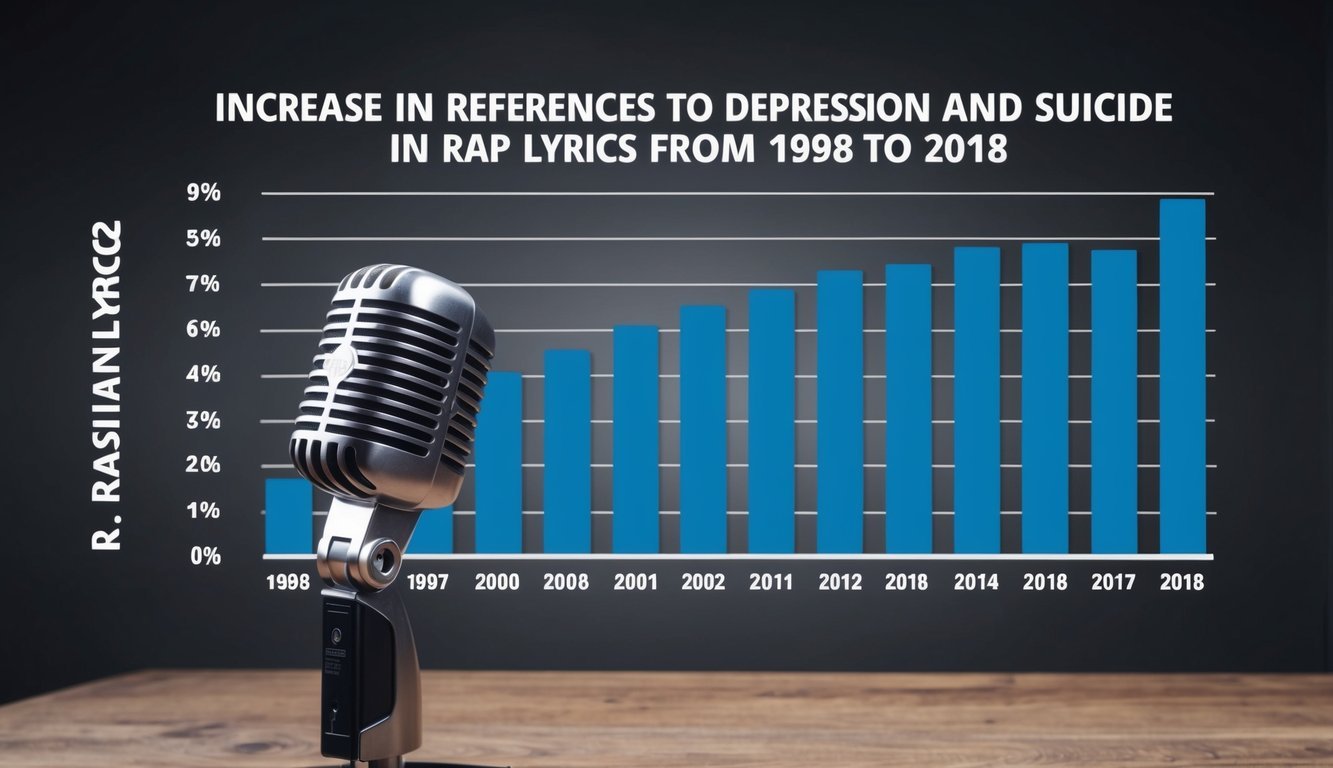
Music has become a notable platform for addressing mental health issues. Artists are increasingly using their lyrics to talk about personal struggles, encouraging listeners to confront these important topics. This shift reflects a broader cultural change toward recognizing and supporting mental health.
Between 1998 and 2018, rap music saw a significant rise in themes related to mental health. The proportion of songs discussing depression grew from 16% to 32%. In the same time frame, mentions of suicide jumped from 0% to 12%.
Artists express their feelings of sadness and hopelessness, which can resonate deeply with listeners experiencing similar issues. Songs like “1-800-273-8255” by Logic brought attention to suicide prevention and helped many seek help.
These lyrics serve as a powerful emotional response, showing how music can be both a form of healing and a call for awareness. The artists use their authority within the genre to validate listeners’ feelings and ultimately promote discussions about mental health.
Pop culture plays a crucial role in shaping attitudes toward mental health. As rap music incorporates more themes related to mental wellness, it also influences public perceptions. Artists share their personal stories, breaking down the stigma surrounding these subjects.
Platforms like social media help amplify these messages. Fans share their emotional responses to songs, creating a community around mutual support. This visibility encourages both fans and artists to seek healing.
Moreover, mainstream success of these themes has led to more conversations in society about mental health. The music industry now actively participates in raising awareness, making it a shared responsibility across various segments of pop culture.
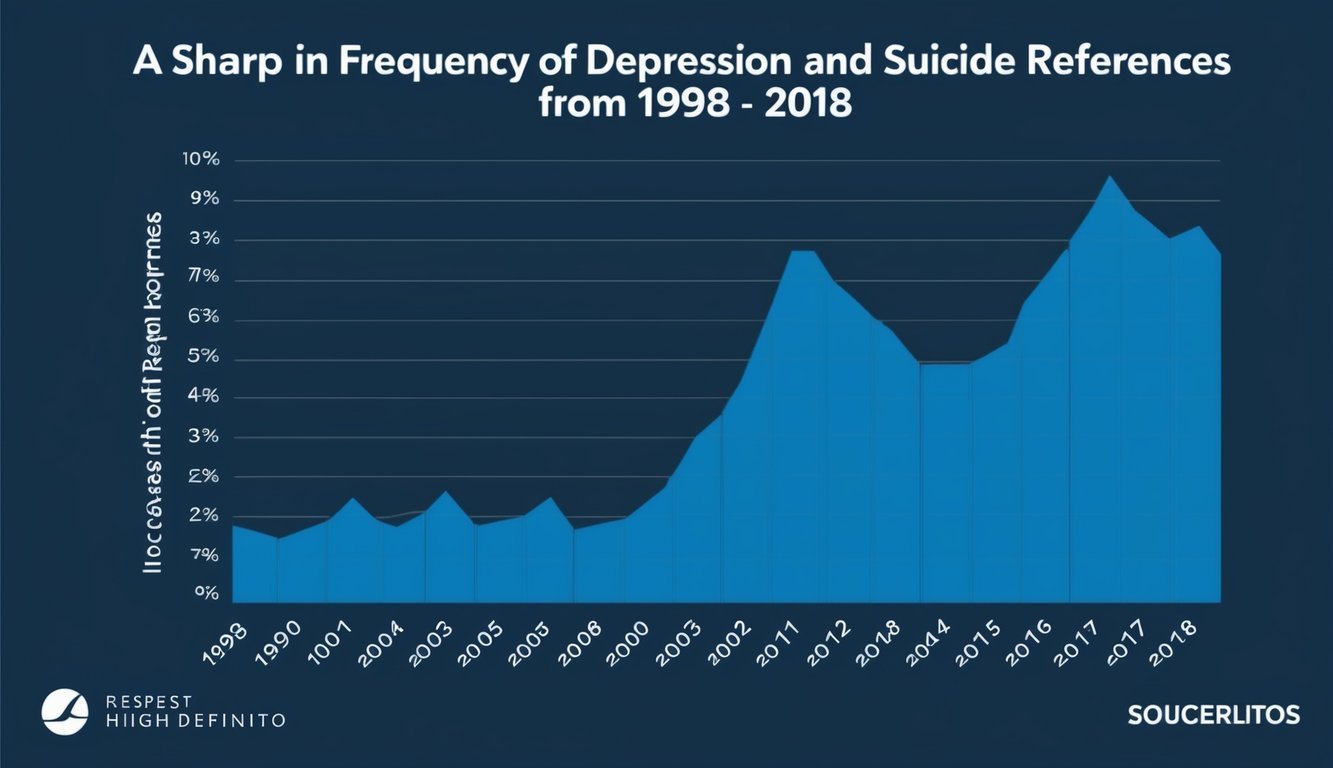
The rise in references to mental health in rap music reflects broader societal issues. Between 1998 and 2018, there was a notable increase in mentions of depression, anxiety, and suicide. This shift is significant in understanding how artists address mental health.
In 1998, only 32% of popular rap songs mentioned mental health. By 2018, this figure had doubled to 68%.
| Year | Percentage of Songs Referencing Mental Health |
|---|---|
| 1998 | 32% |
| 2018 | 68% |
The rise in mentions of suicide was dramatic, jumping from 0% to 12% in the same years. Similarly, references to depression increased from 16% to 32%. This trend highlights a growing willingness among artists to discuss personal struggles openly.
Several studies indicate that mental health issues have spiked nationwide. For instance, anxiety and depression rates have risen significantly in the past two decades.
This statistical parallel emphasizes how music can mirror and sometimes influence societal attitudes toward mental health. Artists often serve as voices for those who feel unheard, making these statistics crucial for understanding cultural movements.
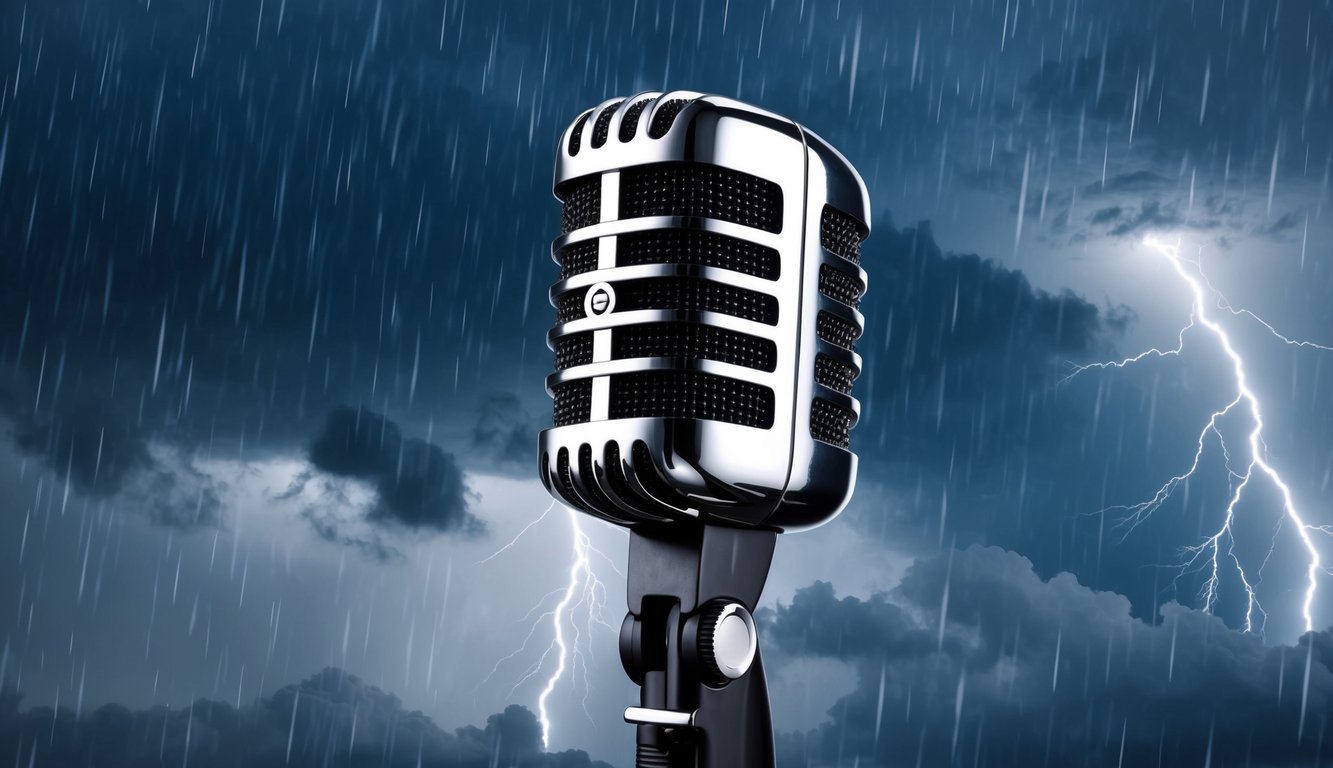
The rise in references to mental health in rap lyrics has significant effects on society. It touches young listeners and opens conversations about mental health. These lyrics can encourage awareness and support for those who struggle.
Rap music frequently resonates with youth, making them more aware of mental health issues. Many young listeners relate to the themes of depression and anxiety shared in the lyrics. For some, hearing these struggles echoed in music creates a sense of connection.
A study showed that rap songs referencing mental health jumped from 8% to 44% over two decades. This increase can help normalize discussions about feelings and emotions among teens.
Listening to these songs can empower young people to seek help when needed. Knowing they are not alone in their struggles can be reassuring. They may feel more comfortable opening up about their feelings.
Music can play a strong role in suicide prevention. Many rap artists use their platform to share personal stories, addressing struggles with suicidal thoughts. By doing so, they can reach those who are suffering in silence.
Specialists often point out that songs addressing these topics can encourage listeners to talk about their feelings. They might feel inspired to reach out for support.
Rap lyrics can also spark important conversations in schools and on college campuses. Educators and counselors can use these themes to promote mental health resources. This approach helps create a supportive environment for students.

As more rap songs address depression and suicide, challenges and skepticism arise. Concerns often focus on whether music can truly help those struggling with mental health issues. Critics question the effectiveness of using rap as a means for healing.
Some believe that referencing mental health in music can trivialize serious issues. Critics argue that these songs might romanticize struggles like addiction or suicide. They worry that listeners might see these topics as a way to seek attention rather than addressing underlying problems.
Moreover, not everyone views music as a healing tool. Some authorities in mental health stress the need for professional treatment over music-based approaches. This skepticism can limit discussions about how art can be part of mental health support.
Despite criticism, many argue that rap has a unique power to connect with listeners. Its raw emotion can help break down barriers around tough topics like depression. When artists share their stories, it encourages others to seek help and talk openly about their experiences.
Rap can spark conversations that might not happen otherwise. By presenting relatable narratives, it fosters understanding and empathy. This connection can pave the way for healing. Challenging skepticism is important in promoting rap as a valuable tool for mental health awareness.
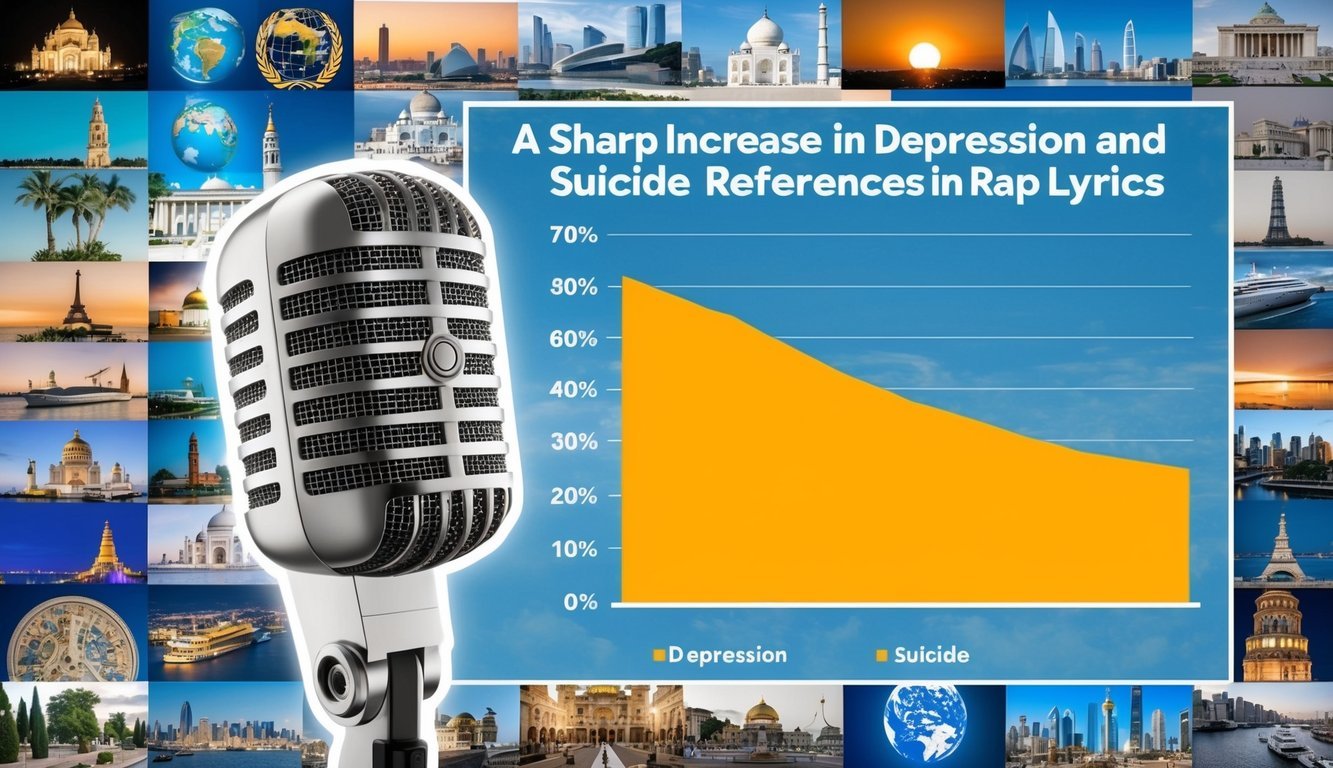
Mental health issues are gaining attention worldwide, and communities are creating initiatives to address these concerns. Various programs have emerged that aim to support individuals and raise awareness of mental health.
Australia has made significant strides in mental health awareness. The Australian Government launched the National Mental Health and Suicide Prevention Plan, which aims to reduce suicide rates and improve mental health support.
Local organizations, like Beyond Blue, provide resources and counseling services. They focus on raising awareness about depression and suicide through campaigns and events.
In sports, Australian football clubs engage fans by promoting mental health resources at games. Initiatives in schools also teach students about mental well-being, aiming to create a supportive environment for young people.
Globally, many programs focus on mental health. The World Health Organization emphasizes mental health as a vital part of overall health. They support countries in developing national strategies for mental health and provide guidelines for addressing these issues.
In the U.K., clubs from the Premier League, like Manchester United, promote mental health awareness through community programs. These campaigns use football as a platform to engage fans and provide resources.
In places like Santa Cruz, local initiatives address mental health challenges through community support groups. They offer workshops and educational resources to help individuals cope with their mental health and build resilience.
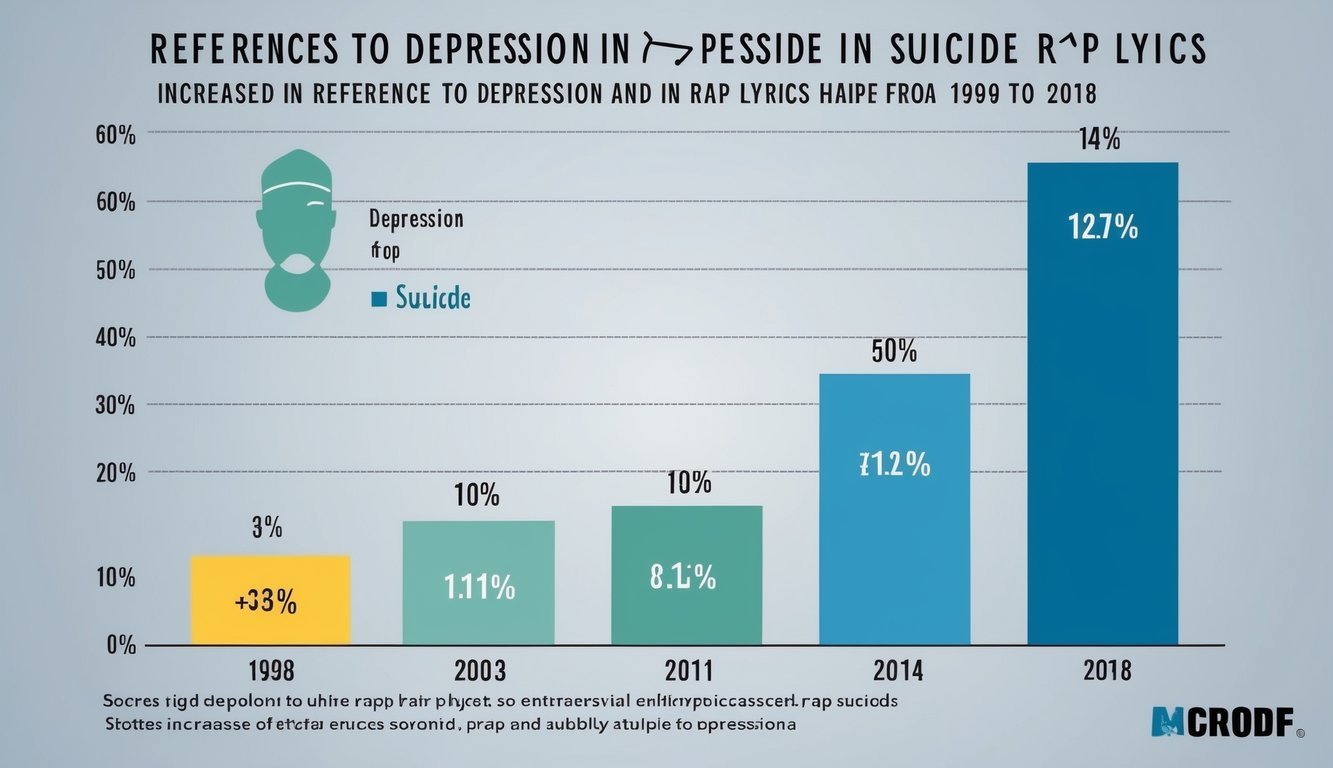
Rap music has become an important channel for discussing mental health topics. Many artists express personal struggles with depression and suicide through their lyrics, reflecting a shift in societal attitudes towards mental health.
Rap music raises awareness about mental health by openly discussing issues like depression and anxiety. These conversations can help reduce stigma and encourage fans to seek help.
Listening to rap can affect emotions and mood. The powerful lyrics and themes can resonate with listeners, helping them process their feelings and find comfort in shared experiences.
Artists often share their personal stories through rap. By talking about their struggles, they create a sense of community and validate the experiences of their listeners.
Several rap songs address these themes directly. Tracks by artists like Logic, Kid Cudi, and Eminem discuss mental health challenges, providing insight into their experiences.
The term often used is “emo rap.” This subgenre blends rap with emotional expression, focusing on themes like heartbreak, depression, and personal struggles.
Rap has shifted from a focus on celebration and bravado to include deeper emotional narratives. More artists are discussing their mental health openly, reflecting a broader trend in society towards acceptance and support.